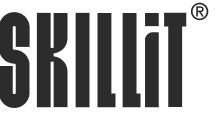
Roles evolve faster than we can define them. Job titles feel generic. CV’s tell us where we’ve been, not where we’re going. The truth is that most careers no longer follow a straight line.
Welcome to the age of career fluidity, where movement, growth, and reinvention are no longer the exception, but the new standard.
The End of Linear Careers
Once upon a time, career paths were clear and straightforward. You studied something, joined the relevant industry, and climbed the career ladder, title after title, promotion after promotion.
That model? It’s disappearing. According to McKinsey, most professionals will make three to five major career transitions in their lives, and that doesn’t even include the smaller shifts, pivots, or upskilling cycles in between.
LinkedIn data also backs this up: there is a rise in talents crossing industries and functions entirely, often blending creative, analytical, and digital roles. Many blend multiple domains at once: tech and creativity, business and psychology, data and storytelling. The old roadmap just doesn’t apply anymore. And yet, we still pretend that a job title or a degree can define who someone is professionally.
Fluidity Is the New Normal
This isn’t a trend. It’s reality.
The professionals who thrive today aren’t the ones with the “perfect fit.”
They’re the ones who adapt, reframe their value, and translate their skills across different contexts. They don’t wait to be promoted. They redesign their careers. They move sideways, diagonally, sometimes even in loops, collecting insights, experimenting, expanding their range.
We’re now living in a world shaped by cross-functional agility, hybrid roles, and self-defined growth. Careers are built less like ladders and more like portfolios, made of projects, learnings, risks, reinventions.
As the World Economic Forum notes, adaptability and continuous skill renewal aren’t optional anymore. They’re essential. And yet most people are navigating this shift without tools, without guidance, and often, without clarity.

Why We Feel Lost: Nobody Taught Us Career Design
Let’s be honest.
We were taught how to write a CV.
We were told how to get a job.
But we were never taught how to design a career.
No one showed us how to identify our transferable skills. How to articulate our evolving value. How to align our energy and direction with real opportunities in the world.
Instead, we base our decisions on outdated indicators such as titles and degrees. Even if we know that they don’t capture the full picture. According to Deloitte, the absence of career design education creates a widespread sense of stagnation and reactive decision-making. Professionals feel lost, even when they’re working hard.
What We Actually Need: Clarity, Strategy, Skill Awareness
At Skillit, we believe in bringing intention back into career growth.
Career design isn’t about following a formula. It’s about tuning into your own unique mix of strengths and where those things meet the needs of the world.
It starts by knowing what you’re uniquely good at. Then, understanding where that has the power to create real impact. And finally, develop through learning, experimenting, and connecting with others who expand your view.
When you have that clarity, you stop reacting and start designing.
As Harvard Business Review puts it: in an age of nonlinear paths, your narrative and your skill stack are your strongest assets.
From Titles to Momentum: A Skillit Perspective
If your title doesn’t reflect who you are anymore you’re not alone.
If you update your CV and feel like it’s outdated again by next week, that makes sense.
Because you are not your role.
You are your momentum.
And you get to decide what comes next.
Ready to Redesign Your Career?
Join us at the next Skillit Masterclass and gain the clarity, direction, and tools to build a career that evolves with you.


